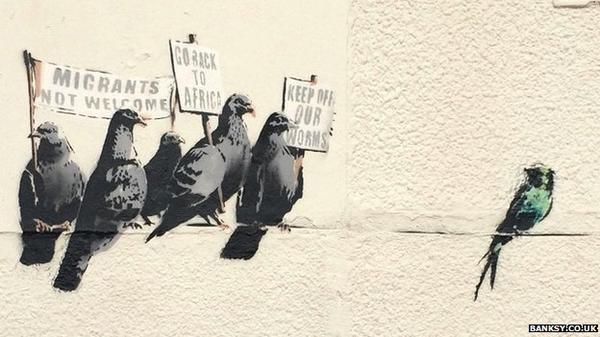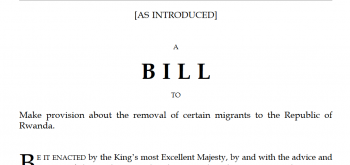The House of Lords has rejected four key amendments to the controversial Nationality and Borders Bill. Peers rejected two controversial proposals: Clause 9 which would have given the government the power to strip British citizenship from people without warning; and Clause 11 that would criminalise refugees who entered the UK via ‘irregular routes’.
Both measures had already received widespread criticism. The ‘differentiation of refugees’ has been lambasted by charities and refugee groups, with the UNHCR raising the alarm that a two-tiered approach would breach the 1951 Refugee Convention.
If the clause had remained, those who enter the UK via small boats would have been criminalised, with sentences raised from six months to four years, barred from accessing public funds and prevented from being joined by their families. Peers rejected the measure by 204 to 126 votes.
The Refugee Council responded to the development: ‘Clause 11 would be devastating for many refugees. We would see the creation of a highly precarious group of refugees, with restricted rights, unable to properly integrate or plan for their futures, constantly at risk of being reassessed for removal and enduring prolonged separation from their family. Peers aren’t prepared to see this Government undermine a key principle of refugee protection – that we should not discriminate against refugees based on how they travel. People desperately fleeing war and persecution should always have a fair hearing on British soil.’
Peers also rejected measures that would have expanded the power of the Home Secretary to strip people of their British Citizenship. Clause 9 of the Bill would exempt the government from having to give notice of removal of someone’s citizenship if it is not ‘reasonably practicable’ to do so, or in the interests of national security, diplomatic relations or otherwise in the public interest.
The Director of Reprieve, Maya Foa, said: ‘Peers have heard the outcry against this attempted power grab by the Home Secretary. The government’s powers to strip citizenship are already the broadest in the G20. They are used disproportionality against people from ethnic minority communities. Today the House of Lords said “enough”.’
Speaking in the Lords, Baroness Warsi criticised the proposed legislation, stating it would make those whose parents or grandparents emigrated to the UK second-class citizens. She said passing Clause 9 would mean ‘In our courts we punish two people, convicted of the same crime, differently based upon their heritage’.
The Lords voted by a majority of 36 to strike this power from the Bill. The proposed legislation will now return to the Commons where it is expected to be voted on again within weeks.







